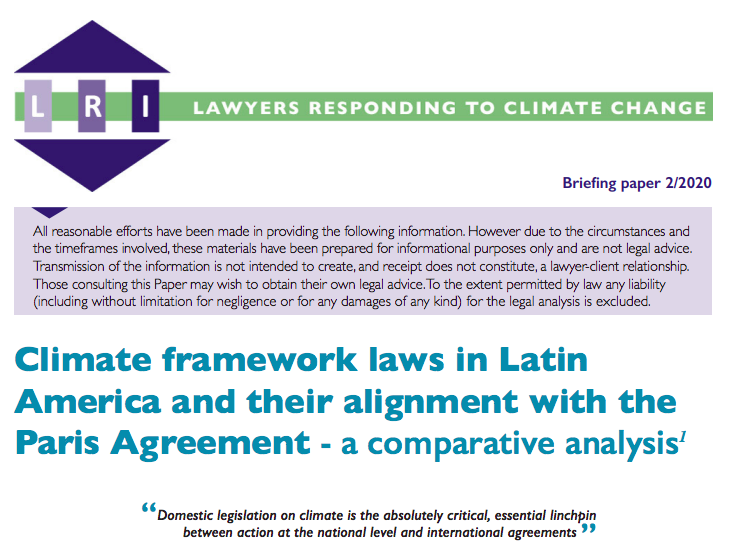
LRI has published a comparative legal analysis of climate framework laws in Latin America and their alignment with the Paris Agreement. The new briefing paper authored by a group of LRI lawyers led by Olivia Tattarletti assesses if, and to what extent, the laws reviewed meet the requirements of the Paris Agreement and, on that basis, identifies gaps and achievements. It draws lessons from the laws reviewed and offers recommendations for future legislative interventions.
It is nearly 5 years since the adoption of the Paris Agreement and nearly 2 years since a set of further rules for its implementation were adopted. So, how are countries who are Parties to the Agreement pursuing their commitments at the domestic level? The Agreement does not specify how Parties are to do this. In practice, they will pursue a range of approaches depending on national circumstances and priorities, and rely on a mix of policy, law and regulations.
This new briefing paper reviews one of the potential approaches – framework laws. Climate framework legislation could provide the “legal backbone” for dealing, at the national level, with the global climate problem in decades to come. The comparative analysis presented in the paper examines how the climate change framework laws of Mexico, Peru, Guatemala, Honduras and Paraguay compare to each other when implementing the main substantive provisions of the Paris Agreement. The conclusions and recommendations offered thereafter aim to support developing country governments in the domestic implementation of the Agreement.

